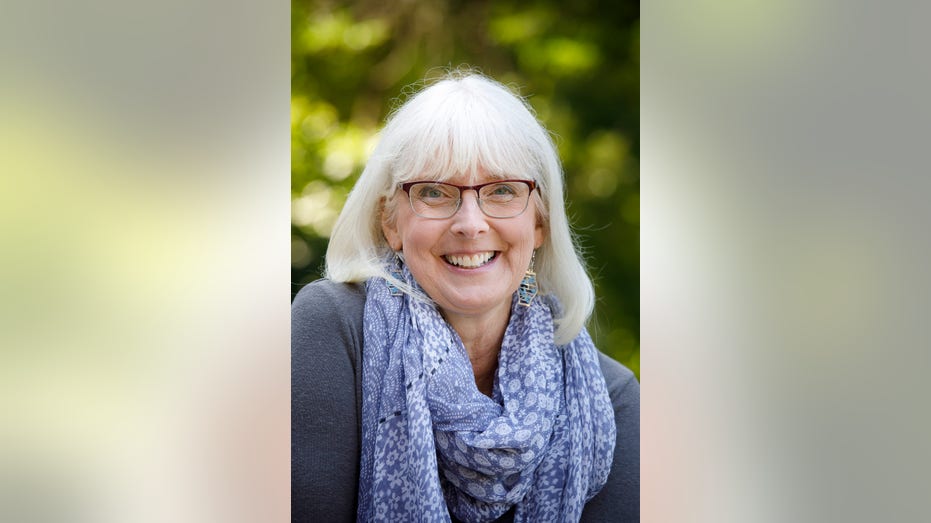COVID will continue to highlight America's nursing shortage in 2022 and the looming ‘silver tsunami'
Last year, more than 80,000 qualified applicants were not accepted at schools of nursing largely because of shortages of faculty, clinical sites, and other supporting resources
Hospitals nationwide brace for worker shortages due to Biden vax mandates
New York Republican Nicole Malliotakis reacts to Democrats' vaccine mandates on 'The Evening Edit'
There were 4.3 million U.S. births in 1957, the peak year of the Baby Boom. Come Jan. 1, 2022, that multitude begins turning 65, for most still a psychological milestone on the road to retirement.
While the Great Resignation continues to garner most of the attention these days, at least some alarm is being raised about the impending effects of the "Great Retirement" on all manner of industries and professions. Few will be impacted more, to the detriment of more Americans, than nursing.
JOB OPENINGS CLIMB TO NEAR-RECORD IN OCTOBER AS LABOR SHORTAGE PERSISTS
Well before the COVID-19 pandemic, many in the health care industry were actively concerned about a persistent worldwide nursing shortage. Long hours and short staffs during the nation’s long COVID response and recovery have only compounded the problem, with recent studies documenting extreme exhaustion, physical discomfort, and emotional distress across an already stressed nursing workforce. And yet, often inspired by the images of nurses serving valiantly on the frontlines of the pandemic, large and growing numbers of new recruits are applying to nursing programs nationwide. We should be concerned that there won’t be enough faculty there to greet them when they arrive.

FILE – Syringes filled with the Johnson & Johnson vaccine are shown, Thursday, May 13, 2021, at a mobile vaccination site at the Greater Bethel Church in Miami. ((AP Photo/Wilfredo Lee) / AP Newsroom)
Last year, according to data from the American Association of Colleges of Nursing (AACN), more than 80,000 qualified applicants were not accepted at schools of nursing largely because of shortages of faculty, clinical sites, and other supporting resources.
The total included more than 66,000 absent from entry-level baccalaureate programs, though most worrisome to the AACN were the 12,871 applications turned away from graduate programs, which will only further limit the future pool of potential nurse faculty.
US needs 'quick ramp up' of COVID test production: eMed CEO
eMed co-founder and CEO Dr. Patrice Harris says the U.S. needs a better at-home testing protocol.
We see both these phenomena up close from our window overlooking east central Pennsylvania, where there has been significant growth in Moravian University’s Accelerated BSN and Nurse Practitioner programs, even as we currently search to fill six faculty positions resulting mostly from recent retirements.
GET FOX BUSINESS ON THE GO BY CLICKING HERE
In this post-industrial segment of the United States, the aging of America is also more obvious, perhaps, than other regions. Though the gray wave or so-called Silver Tsunami is shortly to wash across the whole country, with those 65 and older projected to nearly double from 52 million in 2018 to roughly 95 million by 2060. In half that time or around 2034, says the U.S. Census Bureau, older adults will outnumber children (under 18) for the first time in the nation’s history.

Diane White Husic, Ph.D., is dean of the School of Natural and Health Sciences at Moravian University in Bethlehem, Penn. (Moravian University)
With an aging population, naturally, comes an increasing need for health care, long-term care, and social services to support older adults as they age. And so, the negative feedback loop that is fewer-available-nursing-faculty-to-train-future-nursing-faculty-keeps nursing enrollment depressed creates another crisis loop involving an ever-more elderly population putting ever-increasing pressure on a system already overburdened because of an inability to provide the education and opportunity to a sufficient number of able and deserving students.
CLICK HERE TO READ MORE ON FOX BUSINESS
Increasing support for nursing faculty is a vital first step in attempting to interrupt both these cycles. Educators in the field must have advanced degrees but usually earn only half that of nurses working the floor of a hospital.
The pandemic intensified those financial strains as many nursing programs were compelled to trim budgets and limit or reduce salaries, forcing many educators to look for more lucrative work. Adding to the urgency, projected faculty retirements nationally by 2025 represent roughly a third of all nursing faculty in place just 10 years earlier, in 2015.
We can also continue to say, "Thank you" and "We need you," to the professionals engaged in what Americans have long regarded as the most honorable profession.
For nearly two decades, nurses have topped the annual Gallup poll results for public perceptions of honesty and high ethical standards; in the grips of COVID-19, I think we should add courage and determination. Their example and their needs deserve our action.
Diane White Husic, Ph.D., is dean of the School of Natural and Health Sciences at Moravian University in Bethlehem, Penn.






















